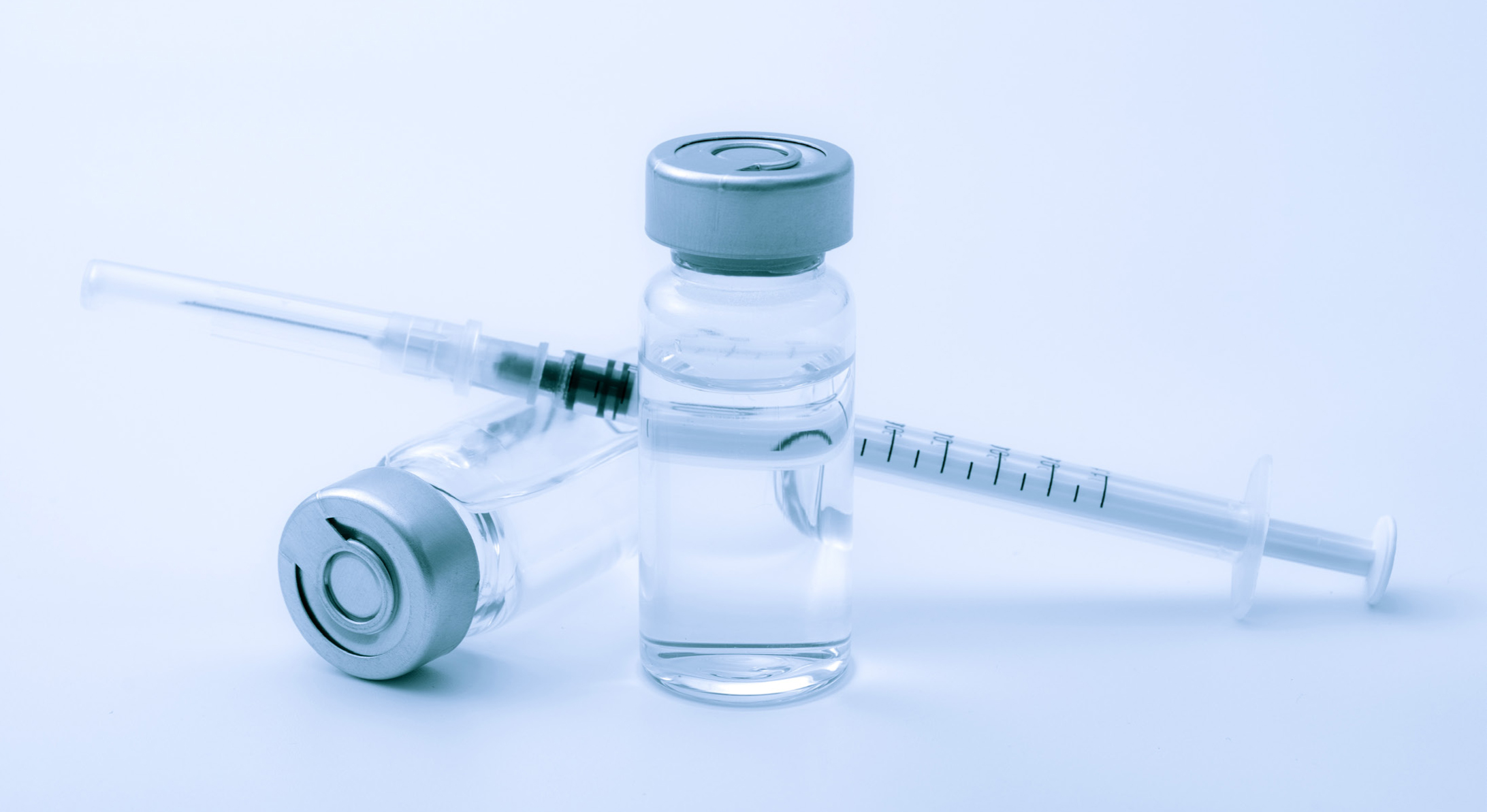
 The licensing regime should make provision for the safe and ethical sourcing, distribution and administration of products and medicines
The licensing regime should make provision for the safe and ethical sourcing, distribution and administration of products and medicines
The Joint Council for Cosmetic Practitioners (JCCP) has worked closely with the Department of Health and Social Care (DHSC), the Medicines and Healthcare products Regulatory Agency (MHRA) and the Care Quality Commission (CQC), as well as a range of other regulators within the UK, with one aim: to promote patient safety and enhance public protection. At the heart of the JCCP's mandate is a call to introduce statutory regulation for the aesthetics sector, while reducing the burden of multiple inspections for registered healthcare practitioners and their clinics. In July 2021, the All-Party Parliamentary Group (APPG) on Beauty, Aesthetics and Wellbeing advised that it was unable to call for a national system of statutory regulation for the sector, but recommended the design and implementation of a national aesthetics licencing scheme for England:
‘The APPG recommends that the Government introduces a national licensing scheme to govern the oversight of advanced aesthetic non-surgical cosmetic treatments, such as Botox, dermal fillers, polydioxanone (PDO) cogs and threads. It should consider amending the Local Government (Miscellaneous Provisions) Act 1982 or introducing such a scheme via new primary legislation as the most appropriate avenue to do so. A national licensing scheme must be supported by a clear framework mandating the national minimum standard of public safety, training and qualifications for all practitioners. This should be developed with industry based on the Health Education England (HEE) framework and National Occupational Standards’.
(APPG on Beauty, Aesthetics and Wellbeing, 2021)
The JCCP hosts a voluntary practitioner register and a register of approved education and training providers who have been independently audited and assessed as meeting the JCCP/Cosmetic Practice Standards Authority (CPSA) standards and competencies (2018). A number of key building blocks have now been put in place by the Council:
- The JCCP education and training register
- The JCCP entry standards for approved education and training providers
- The JCCP competency framework: cross-referenced to the published JCCP/CPSA standards (2018) and the original HEE framework, which is now under the stewardship of the JCCP
- JCCP Standards for educational premises and programme delivery (including standards for trainers, assessors and supervisors)
- A process to operate and approve JCCP fast track assessment centres (the first of which has now opened)
- The publication of a definitions paper, detailing what constitutes a ‘medical’, a ‘medically related’ and a ‘cosmetic’ aesthetic treatment (JCCP, 2021).
Defining the categories of activity that require regulating in the UK
The JCCP published its 10-point plan in April 2021, with the aim of informing a new system of regulation for the aesthetics sector (JCCP, 2021). One of the ten points relates directly to options for a potential licensing system. The 10-point plan was shared with members of the APPG for Beauty, Wellbeing and Aesthetics (and with DHSC colleagues), who reflected many of the JCCP's recommendations in their published report.
The JCCP has advised that all aesthetics treatments at Level 6 and 7, which are specified in the JCCP's competency framework (2018), should be regarded as being subjected to a rigorous system of either CQC regulation or licensing and oversight, due to the level of risk and harm that can potentially occur if injectables, fillers, cogs, threads, invasive lasers and deep chemical peels, etc, are administered. The JCCP believes that only appropriately trained, registered and regulated health professionals should be involved in the administration of Level 6 and 7 treatments, as defined in the JCCP's competency framework (2018).
In our opinion, the following categories/activities should be the subject of a national system of licencing and regulation:
- Practitioner compliance, in regard to operating from designated registered premises that accord with a national benchmark of premises standards that focus specifically on infection control and health protection. There should also be a ban on mobile working. The JCCP has produced premises standards, which are available on our website for inspection
- The JCCP is firmly of the view that all practitioners, irrespective of their professional background or otherwise, must meet a nationally determined (UK-wide) standard of education and training for all treatments that are considered to carry a specific element of risk and potential harm. Such training courses should be formally approved by a nationally recognised body and should be recorded on a national register of approved courses that meet a national standard. In the JCCP's opinion, that standard must (as a minimum) be the standard set down in 2015 by HEE for the provision of education and training for aesthetic treatments. It should be noted that the HEE standards were transferred to the JCCP in 2018 for future stewardship and revision, which were subsequently developed and enhanced by the JCCP and the CPSA later the same year. These standards are currently being operated on a voluntary and non-mandatory basis within the UK
- The JCCP operates a register of approved training providers who have been assessed by the JCCP as meeting the standards set out in its competency framework (2018). The APPG has supported the JCCP's call that there should be one standard adopted for national enforcement purposes that should not be open to any unreasonable level of variation in the interests of patient safety and public protection. At the present time, there is no such national enforceable standard, but the APPG has called upon Ofqual to apply a single uniform industry/professional standard to the qualifications that they regulate. Over the past 3 years, the JCCP has had a continuous and constructive dialogue with Ofqual and the Scottish Qualifications Authority (SQA) in regard to these issues
- A national licensing regime should require all practitioners to present evidence of adequate medical indemnity insurance cover and also provide patients/members of the public with access to a redress scheme, should a complaint arise
- The licensing regime should also ensure that non-prescribing practitioners have access to an appropriately qualified and registered prescriber who provides a face-to-face assessment of members of the public before any prescriptions are provided to a third-party practitioner, in accordance with the advice provided by the JCCP. Details of the designated prescriber should be inspected as part of the regime
- The licensingregime should also make provision for the safe and ethical sourcing, distribution and administration of products and medicines that have been approved by the MHRA (for example, toxins and dermal fillers).
What is required to assure public protection?
In the absence of a Government mandate to implement a national system of statutory regulation for the aesthetics sector, the JCCP believes that a local authority licensing scheme should be put in place across the UK, to protect members of the public from the consequences of unregulated and unsafe aesthetic practice. However, as the Government considers its response to the APPG report, the JCCP will campaign actively with other like-minded bodies for statutory regulation.
If the JCCP cannot persuade the Government to consider statutory regulation, then the other option must be for a national licensing regime to be co-designed and implemented across the UK for all aesthetic practitioners. Primary legislation will be required to mandate the implementation of such a scheme. The JCCP considers that it might be appropriate for parts five and six of the new Health and Care Bill (which is about to enter the committee stage in Parliament this autumn) (UK Parliament, 2021) to be used as a potential vehicle to require local authorities to make provision for a new system of licensing for aesthetics in the UK. More specifically, where regulations are made under this Bill, those regulations may make consequential, supplementary, incidental or transitional provision for matters that pertain to licensing within the aesthetics sector.
The role of the Care Quality Commission
The JCCP is of the opinion that one system of licensing is required for the UK, irrespective of whether a regulated health professional or beauty therapist is administering the treatment. It is very unlikely that any system of statutory regulation will be imposed by the Government, since there is no appetite to expand the current role and remit of the CQC to include a wider range of aesthetic treatments as regulated activities.
Consequently, should a national system scheme of licensing be introduced in the UK, it is the JCCP's opinion that registered and regulated health professionals who work from regulated premises should be required to provide evidence that they are compliant with all key standards that might be set down within the context of any new national licensing scheme, and which should form part of periodic CQC inspections. If this is achieved, the JCCP does not consider that CQC-regulated health professionals should be subjected to an additional tier of inspection by local authority environmental health enforcement officers.
Summary
It should be noted that the APPG recommendations will require detailed debate and consideration by Parliament within the next 6 months. There is no guarantee that any of the recommendations set down by the APPG will actually reach the statute book, but the JCCP remains confident that there is a significant appetite among parliamentarians to enhance patient safety and public protection through the implementation of a licensing scheme, such as that described in this article. The JCCP reiterates that, in its opinion, CQC-registered health practitioners who operate from CQC-registered premises should not be subjected to an additional or duplicate tier of inspection by local authorities. All registered health professionals, irrespective of being CQC-registered or otherwise, should provide evidence of full compliance with all standards that might be proposed to underpin a national system of licensing for the aesthetics sector. For this to be achieved, dialogue will need to take place between the CQC and local Government licensing authorities to ensure that there is no compromise to patient safety.
» CQC-registered health practitioners who operate from CQC-registered premises should not be subjected to an additional or duplicate tier of inspection by local authorities «
Regardless of whatever system of regulation is proposed, the JCCP wishes to see the creation of a national system of licensing, whereby there is adequate auditing for qualifications, possession of appropriate insurance cover, the safe supply and use of products/medicines and the provision of safe, ‘harm-free’ premises. Additionally, any licensing scheme must include the implementation of sanctions when aesthetic service providers are unable to evidence compliance with mandated measures/standards. This will require the implementation of specific powers for local authority enforcement officers, to enable them to deal immediately with non-compliant practitioners for a wider range of aesthetic procedures in the future.
As such, the JCCP will continue to work with the CQC, MHRA and CPSA to undertake an evidence-based risk assessment of a range of more invasive cosmetic procedures, with the aim of determining whether further restrictions, controls and regulations should be implemented in the interests of public protection (such as requiring all practitioners to possess the required knowledge and skills to perform aesthetic procedures safely and effectively and to be trained to a nationally determined minimum standard).
It will also use existing networks and expertise provided by the CQC, MHRA, the Chartered Institute of Environmental Health (CIEH) and the Institute of Licencing (IoL). This will exert political influence and lobby for change to develop and implement legislation that is fit for purpose, responsive and adequate to protect members of the public, without placing any undue burden on practitioners who are already subject to regulatory inspection.
Finally, if the Government determines a range of measures that significantly changes the way in which aesthetic businesses and practitioners are regulated, there will need to be a major campaign to raise awareness among patients, clients and members of the general public regarding the importance of procuring the more invasive aesthetic treatments from regulated practitioners only. Consumer awareness, knowledge and easily accessible information are vital ingredients to deliver patient safety and public protection.



